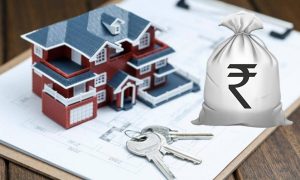There are many factors to be considered when buying a property as it is usually one of the biggest spends of one’s life. Price is, of course, a major consideration but there are other factors too. “Home-buying involves a multi-layered approach which involves factors like the income of an individual, the capacity to pay EMIs (equated monthly instalments), the city and location, whether the purchase is for living oneself or for rental purposes, among others. Such factors have long-term implications on a person’s finances,” said Nitin Vyakaranam, founder and CEO of ArthaYantra, a financial planning firm.
Right now, due to covid-19, it has become more important for homebuyers—even those who are not facing a cash crunch—to assess these factors and others. Given the prevailing financial uncertainty, we have tried to address some of the questions buyers may be facing.

Should I wait for a price correction?
Prices have remained mostly stagnant over the past few years and post covid, some of the locations have seen a price correction.
However, experts believe that further significant price correction may not be on the cards. “We have seen price correction of around 5-10% post covid and are not sure if there is much room left for further correction,” said Samir Jasuja, CEO, PE Analytics, a Gurgaon-based real estate research firm.
Pankaj Kapoor, managing director, Liases Foras, a Mumbai-based real estate research firm, said that 6-7% correction had already happened and another 5-6% may happen around the festive season.
But he had a word of caution. “The correction may not be broad-based (reputed builders with ready-to-move-in property are not giving much discounts), and the buyer will have to scout for a better deal,” he said. Bargain hard with developers to get a better price, he added.
How much should I stretch my budget to buy a house?
You may not be facing a cash crunch now but you need to be doubly sure about your financial stability even in the future before you decide to buy a house. Assessing how secure your job or business is and what the likely economic impact of covid-19 is on your industry or company is crucial.
Even if you are sure about buying a house, you need to be careful about the amount of leverage you are taking. Over-leveraging can put you in a tight spot in case of situations such as a job loss. “As most of the home-buying happens through leverage, right now we are advising only those who are sure about stability in income to buy a house,” said Vishal Dhawan, certified financial planner and founder, Plan Ahead Wealth Advisors.
“We continue to believe that it is a good idea to keep EMIs at 30% of the net salary. Post covid, even for double-income families, we have suggested capping EMIs at 30%, in case there is income disruption for one of the members,” said Dhawan.
Look at making a higher down payment after provisioning for short-term goals and emergency corpus, he added.
Should I buy an under-construction or ready-to-move-in property?
This is one of the most common dilemmas homebuyers face. Under-construction properties are more affordable, as developers generally offer flexible payment plans linked to the phases of construction or subvention plans, where you can book a house after paying just 10-20% of the value and settle the rest on possession.
These schemes are attractive but there is a high degree of risk involved in terms of whether the property will be completed on time or not. According to a report from Liases Foras, around 50% of unsold inventory (6,37,000 units) face high execution risk. The situation in the wake of the covid-19 pandemic has heightened this risk.
Experts, therefore, advise that it is better to opt for ready-to-move-in properties now even if that means paying slightly higher prices. “Under-construction property has a certain amount of risk attached to it. They are not even cheap if we take the time value of money into account (with the assumption that the money you receive now is worth less in the future). Also, in case of an under-construction property, one may be living elsewhere and paying rent, which is a drain. It may be wise to just buy a ready property, even if it means paying more,” said Suresh Sadagopan, founder, Ladder7 Financial Advisories. If price is a deterrent, maybe you can pause the decision a bit, as prices are unlikely to go up anytime soon.
However, if you still want to go for an under-construction property, evaluate the developer’s financial strength. “Buyers can also see that project has the required funds. One parameter to see is to ensure that the project land is fully paid for by the developer. Delays in past projects of a developer can also give an idea about possible delays in a project,” said Anuranjan Mohnot, managing director and CEO, Lumos Alternate Investment Advisors Pvt. Ltd, a stressed assets and last-mile funding company.
Should I buy at all or stay on rent?
This has been an evergreen debate. Buying a house means a big chunk of your savings will be stuck in an asset which is not liquid. If you stay on rent, you can have more liquidity in your hands and can even invest the balance.
One needs to do some simple maths based on various factors, including the rent paid, EMI and others (see graph). Remember that the result may differ based on factors such as the location of the property and increase in rentals or property prices.
ArthaYantra has built a scoring system based on factors like the city of residence, income, expected EMI, expected rent for a house in the same locality along with other factors such as a person’s annual savings. A score between 55 and 75 would mean you should stay on rent, whereas a score above 75 would be a recommendation to buy. For example, a person with an income of ₹12 lakh would get a score of more than 75 in a metro city like Kolkata, but a much lower score in a metro like Mumbai.
Such a decision also involves aspects such as whether or not you have a transferable job. “If there is a chance of moving to other cities, living in a rented home can be a blessing. Also, one can choose a rented home according to one’s needs (such as distance from the workplace or children’s school) and affordability,” said Sadagopan. You may be able to afford to buy a house in the suburbs but may manage the rent in the heart of a city.
Is it a good time to invest in realty?
With many places seeing corrections in prices, it is expected that the rental yield which is equal to the rent divided by the value of the property might have gone up, making it attractive to invest in properties. However, experts believe that rental yields from residential real estate are way too low to make a case for investment.
One would be better off investing in bank fixed deposits. “India residential rental yields are 2-2.5% across different cities. Though capital or sale values have declined, it may not necessarily have resulted in increased rental yields as we have seen instances where rentals have also declined due to covid-19,” said Sandeep Reddy, co-founder, Propstack, a Mumbai-based real estate research firm. Given that capital values will remain under pressure for some time, it will be difficult to look at property for investment as even FDs will give better rates, he added.
It’s important not to rush into buying a house. Evaluate all aspects before making a decision.





































